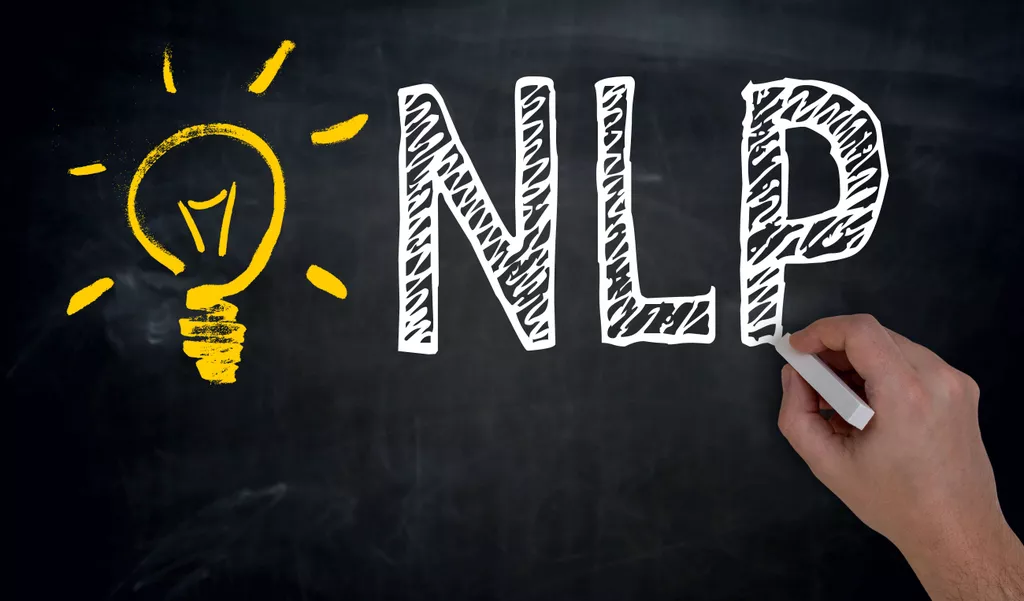Cognitive Automation BPM AI Automation

Cognitive automation technology works in the realm of human reasoning, judgement, and natural language to provide intelligent data integration by creating an understanding of the context of data. These processes can be any tasks, transactions, and activity which in singularity or more unconnected to the system of software to fulfill the delivery of any solution with the requirement of human touch. So it is clear now that there is a difference between these two types of Automation. Let us understand what are significant differences between these two, in the next section. With the rapid boom of big data, this RPA use case alone can drive significant improvements in productivity, as well as cost containment.
What is an example of cognitive automation?
For example, an enterprise might buy an invoice-reading service for a specific industry, which would enhance the ability to consume invoices and then feed this data into common business processes in that industry. Basic cognitive services are often customized, rather than designed from scratch.
Along with comprehending the complexity of technology, keeping up with the tongue-twisting terms is a difficulty given the light-speed advances in ML/AI technologies every few months. Even while all or nothing may not be the most realistic solution for certain firms, these technologies are often buried in larger software suites, which only worsens the situation. New insights could be revealed thanks to cognitive computing’s capacity to take in various data properties and grasp, analyze, and learn from them.
MOST COMMON CHALLENGES FOR COGNITIVE AUTOMATION, RPA, AND AI IN HEALTHCARE
One of the world’s leading platforms for risk discovery in the digital world, Mindbridge is an award-winning solution for companies who need to put compliance and security first. With the Mindbridge intelligent ecosystem companies can access a clever alternative to old-fashioned risk analysis. Mindbridge builds intelligent automation into everything they offer, with not just one method or algorithm, but many combined tools. One of the latest market leaders in intelligent automation technology, Kofax offers a range of smart ways for business leaders to digitally transform. Perhaps the most exciting offering from Kofax right now is the intelligent automation platform.
- With the implementation of these tools, hospitals can free up one of the most important resources they have, human capital.
- CPA, RPA, and AI healthcare are improving data management and compliance at astonishing rates.
- The platform leverages artificial intelligence (AI), machine learning (ML), computer vision, natural language processing (NLP), advanced analytics, and knowledge management, among others, to create a fully automated organization.
- All the apps are very handy as we have the best customer success consultants working together with our Sales Director.
- Comidor makes your workflows smart with Comidor Artificial Intelligence and Machine Learning functionalities.
- IBM Cloud Pak® for Automation provide a complete and modular set of AI-powered automation capabilities to tackle both common and complex operational challenges.
Cognitive automation represents a range of strategies that enhance automation’s ability to gather data, make decisions, and scale automation. It also suggests how AI and automation capabilities may be packaged for best practices documentation, reuse, or inclusion in an app store for AI services. At the heart of a Cognitive Automation platform is a harmonized, contextual, and open data layer that is a real-time representation of the enterprise. It not only combines internal, external, and physical data, but it also retains the memory of all decisions — and their results — to learn how to improve future recommendations. Cognitive automation may also play a role in automatically inventorying complex business processes. Processors must retype the text or use standalone optical character recognition tools to copy and paste information from a PDF file into the system for further processing.
Short Message Service(SMS) & Mail Service
The absence of a platform with cognitive capabilities poses significant challenges in accelerating digital transformation. Moogsoft’s Cognitive Automation platform is a cloud-based solution available as a SaaS deployment for customers. Enterprises of the modern world are constantly looking for solutions that can ease business operations’ burden using automation. Another important use case is attended automation bots that have the intelligence to guide agents in real time. By enabling the software bot to handle this common manual task, the accounting team can spend more time analyzing vendor payments and possibly identifying areas to improve the company’s cash flow. It is important for doctors, nurses, and administrators to have accurate information as quickly as possible and RPA gives them exactly that.
- As more studies are conducted and more use cases are explored, the benefits of automation will only grow.
- For instance, in the healthcare industry, cognitive automation helps providers better understand and predict the impact of their patients health.
- These solutions have the best combination of high ratings from reviews and number of reviews when we take into account all their recent reviews.
- It offers cognitive input to humans working on specific tasks, adding to their analytical capabilities.
- Intelligent automation simplifies processes, frees up resources and improves operational efficiencies, and it has a variety of applications.
- While more complex than RPA, it can still be rolled out in just a few weeks and as additional data is added to the system, it is able to form connections and learn and adjust to the new landscape.
There are a lot of use cases for artificial intelligence in everyday life—the effects of artificial intelligence in business increase day by day. However, if you are impressed by them and implement them in your business, first, you should know the differences between cognitive automation and RPA. The cognitive solution can tackle it independently if it’s a software problem.
Tech Support in Integrated Business Planning
This could involve the use of a variety of tools such as RPA, AI, process mining, business process management and analytics, Modi said. Powered by machine learning (ML) and artificial intelligence (AI), intelligent automation technology can handle a wider array of tasks, requiring baseline analytics and conditioning logic. For example, analyzing the document tags before assigning a proper status to it or reviewing the provided context to pre-suggest the best reply. Robotic process automation (RPA) is the lowest level of business process automation. Largely powered by pre-programmed scripts and APIs, RPA tools can perform repetitive manipulations or process structured data inputs.
How AI is helping deliver smarter supply chains – Supply Chain Digital
How AI is helping deliver smarter supply chains.
Posted: Thu, 01 Jun 2023 07:00:00 GMT [source]
It is no wonder that the average worker is often intimidated by any push for automation. The reality is far tamer — the human worker is the one that benefits from the machine, and the machine cannot replace them. Do not disregard employee education as a key step towards RPA automation. To increase accuracy and reduce human error, Cognitive Automation tools are starting to make their presence felt in major hospitals all over the world. With the implementation of these tools, hospitals can free up one of the most important resources they have, human capital.
RPA vs Cognitive Automation: Understanding the Difference
If the system picks up an exception – such as a discrepancy between the customer’s name on the form and on the ID document, it can pass it to a human employee for further processing. The system uses machine learning to monitor and learn how the human employee validates the customer’s identity. Next time, it will be able process the same scenario itself without human input.

It is rule-based, does not involve much coding, and uses an ‘if-then’ approach to processing. Let’s deep dive into the two types of automation to better understand the role they play in helping businesses stay competitive in changing times. Adopting cognitive technology that can unlock the power of a business’s data not only allows them to be agile, but can prevent the “brain drain” that often accompanies a volatile employment market. Now that some of them have been contextualized let’s focus on two instances where cognitive automation has been able to rethink labor processes and content. We won’t get too deeply into the specifics of machine learning here, but if you’re curious and want to learn more, check out our introduction to how computers learn.
Deloitte: Digital Supply Networks @ the Cognitive Automation Summit
Customer centric at heart, Wayne also specialises in Customer Service Transformation, and has been helping brands in becoming more Digitally focused for their customers. Wayne is an expert in Online Chat, Social Media and Online Communities, meaning he is perfectly placed to help take advantage of Chat Bots & Virtual Assistants. More recently Wayne has concentrate on Cognitive & AI automation, where he leads the European AI Automation practice, helping brands take advantage of this new wave of automation capability. ISG Automation can guide you through the hurdles of adoption, ensuring the optimal future state with best-fit technologies. ISG Automation tailors programs to specific your business needs and helps you build governance that works inside the culture of
your enterprise. While the regulatory agenda has dominated operations and technology spend ever since the 2008 crash, emerging technologies aimed at automation, rationalization and simplification have changed the end-to-end trade life cycle.

Cognitive automation describes diverse ways of combining artificial intelligence (AI) and process automation capabilities to improve business outcomes. Yet while RPA’s business impact has been nothing less than transformative, many companies are finding that they need to supplement RPA with additional technologies in order to achieve the results they want. By shifting from RPA to cognitive automation, companies are seeking the latest ways to make their processes more efficient, outpace their competitors, and better serve their customers.
Assess to Automate to Source
Intelligent automation (IA), or cognitive automation, refers to the use of AI to enhance automation platforms’ capabilities. It is a process-oriented technology that is used to work on ordinary tasks that are time-consuming. Alternatively, cognitive metadialog.com intelligence thinks and behaves like humans, which is more complex than the repetitive actions mimicked by RPA automation. Cognitive intelligence can handle tasks the way a human will by analyzing situations the way a human would.
- In today’s world, businesses need to be proactive and innovative in order to create value in a sustainable and scalable manner.
- In the long run, this can also immensely improve the ROI of RPA implementation.
- Intelligent automation solutions are also called cognitive automation tools, smart automation tools or hyperautomation tools.
- During his tenure as CEO at Alsbridge, he presided over a complete operational and performance overhaul, building it into a leading global sourcing competitor and earning its private equity owners an exceptional return on investment.
- RPA data analytics can automatically scan insurance claims for keywords and important information to automatically route claims to the relevant queues.
- With cross-industry learnings gained from our 20+ years of automation experience, we bring the needed cohesion and upgrade to enterprises’ automation journeys.
Spending on cognitive-related IT and business services will be more than $3.5 billion and will enjoy a five-year CAGR of nearly 70%. For instance, in the healthcare industry, cognitive automation helps providers better understand and predict the impact of their patients health. Cognitive automation can perform high-value tasks such as collecting and interpreting diagnostic results, suggesting database treatment options to physicians, dispensing drugs and more. With RPA, businesses can support innovation without having to spend a lot of money on testing new ideas.
What are the three main types of applications of cognitive technologies?
A useful definition of artificial intelligence is the theory and development of computer systems able to perform tasks that normally require human intelligence. We found that applications of cognitive technologies fall into three main cat- egories: product, process, or insight.



